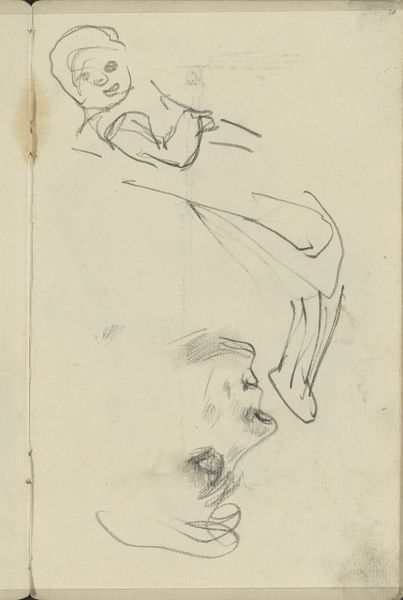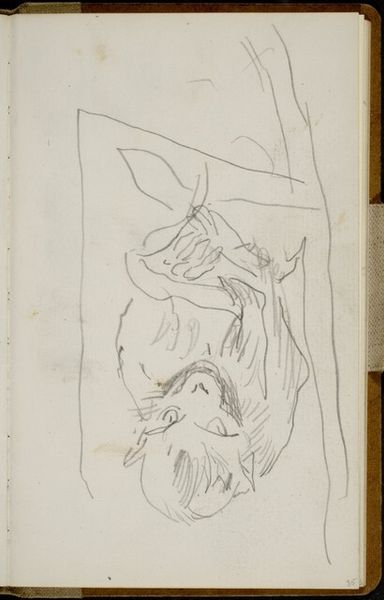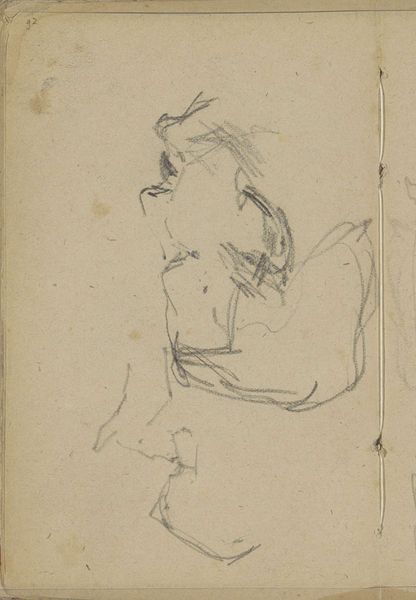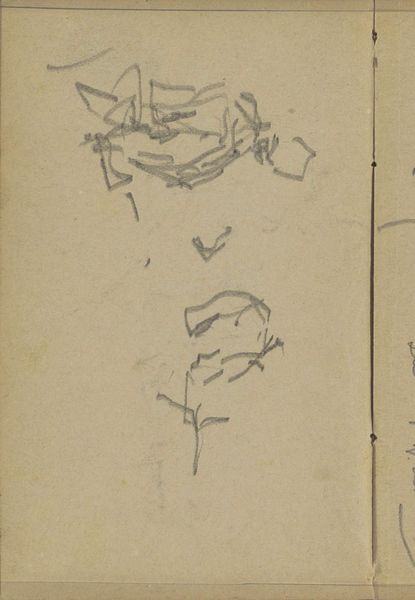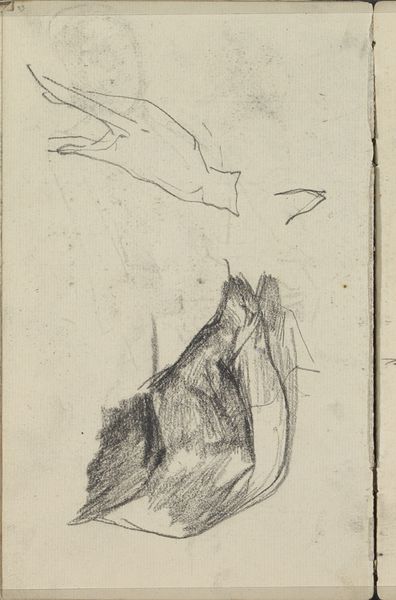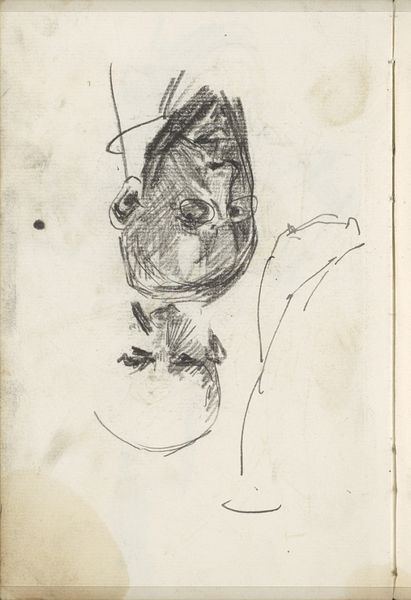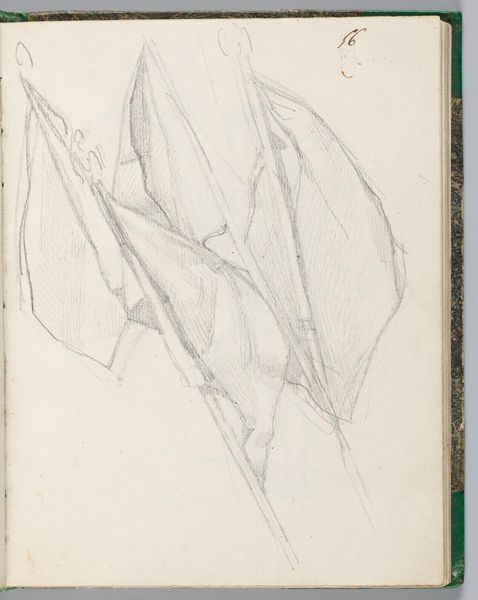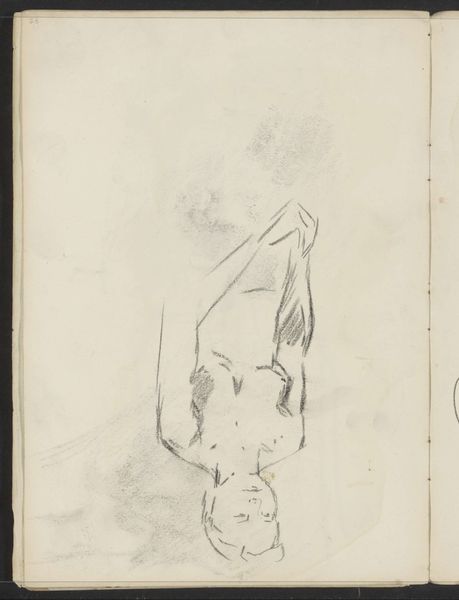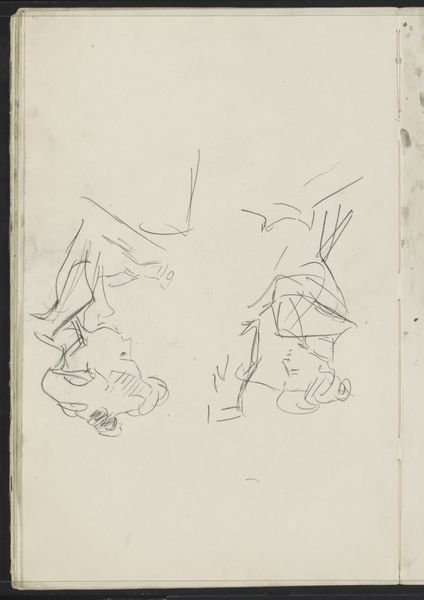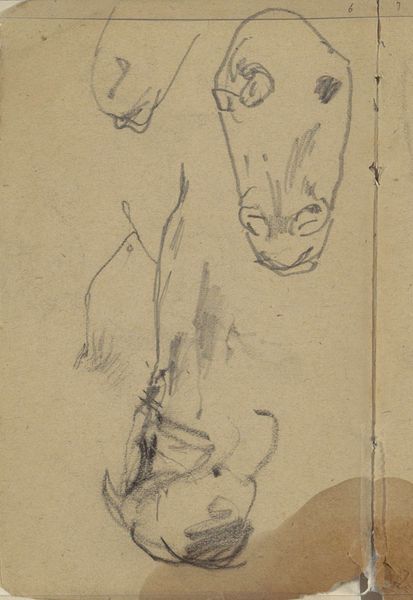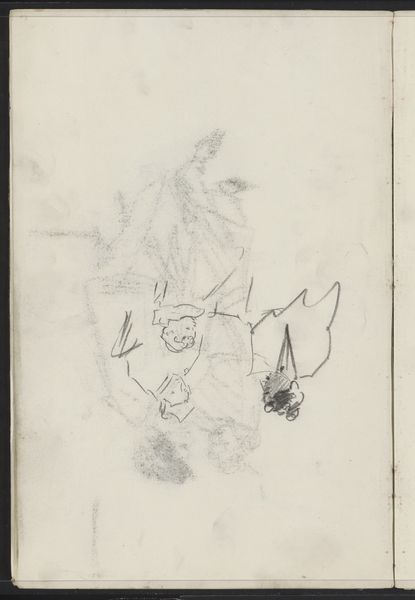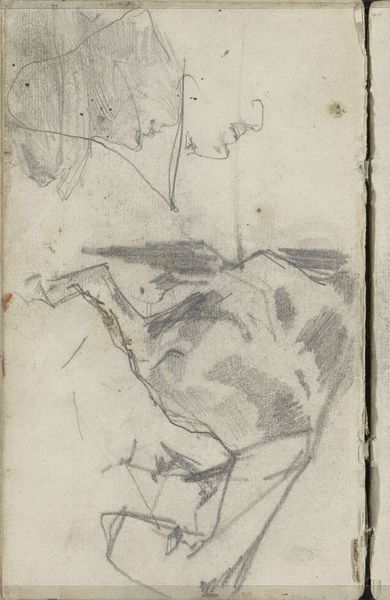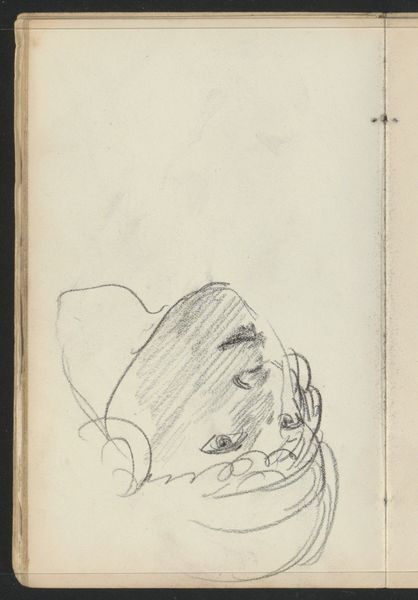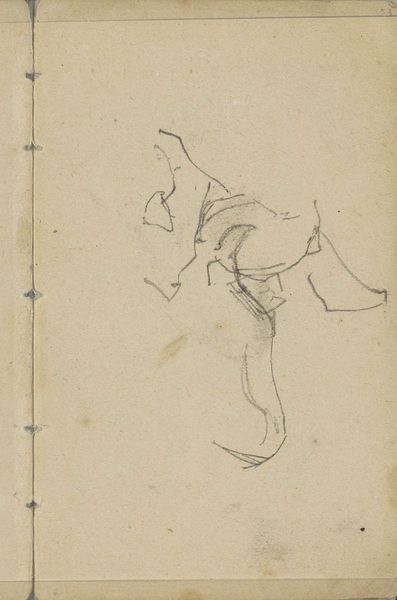
drawing, pencil, graphite
#
drawing
#
amateur sketch
#
light pencil work
#
impressionism
#
pencil sketch
#
incomplete sketchy
#
landscape
#
figuration
#
personal sketchbook
#
idea generation sketch
#
ink drawing experimentation
#
pen-ink sketch
#
pencil
#
graphite
#
sketchbook drawing
#
sketchbook art
Copyright: Rijks Museum: Open Domain
Editor: This is "Liggende kat," a pencil drawing from around 1886 by George Hendrik Breitner, housed here at the Rijksmuseum. It’s a very casual sketch – almost like a fleeting thought. What do you see in it? Curator: I see a subversion of the established order, actually. The domestic sphere, often associated with the feminine, intersects with the traditionally masculine domain of the artist's gaze. Here's Breitner, known for his gritty urban scenes, sketching a cat – a creature often relegated to the background. This seemingly simple drawing invites us to consider the value placed on different subjects, the hierarchy of visibility within art and society, and the way art is gendered in the 19th Century. It’s also, maybe, an early critique of toxic masculinity and an ode to softer modes of existence. Editor: I never thought of it that way! I was just focusing on the technique – the lightness of the pencil strokes and the unfinished feel. So, you’re saying the *subject matter* is actually quite radical? Curator: Radical in its quiet way, yes. It subtly challenges the grand narratives expected of art at the time, disrupting those rigid expectations. Can you sense the cat's stillness? What are some other possibilities suggested by the title itself? Editor: Well, "liggende" could mean lying or reclining. Maybe Breitner is subtly suggesting an association between the animal and the languid female form in painting at the time... taking it out of a traditionally objectified, patriarchal role? Curator: Precisely! Now, imagine that expanded to a modern reading, critiquing representations of minorities. Editor: Wow, that really gives me a lot to think about. I see it so differently now. Curator: That's the power of art. It opens doors for interrogation into ourselves, culture, gender and race.
Comments
No comments
Be the first to comment and join the conversation on the ultimate creative platform.
